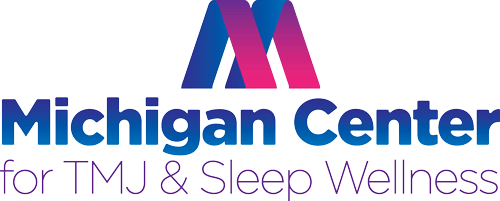Click here to learn more about how we useK-Laser Therapy to treat TMJ.
TMJ Detroit
What Causes TMJ Disorders?
TMJ disorders are a group of loosely related conditions identified together primarily because of their common symptoms, such as jaw pain and headaches, including migraines, all centered around dysfunction of the temporomandibular joint (TMJ). There are many approaches to the treatment of TMJ disorders, with neuromuscular dentistry being one of the most focused and successful.
If you are tired of being given unsuccessful treatments for your symptoms, often with side effects worse than the disorder, we can help. Or if you feel your doctor is not really listening to your symptoms or dismissing them, we will listen. If you’re tired of listening to doctors who all say the same thing, we have a fresh perspective. Please call (248) 480-0085
or email us
for an appointment with Detroit TMJ dentist Dr. Jeffrey Haddad today.
TMJ Symptoms
What Is TMJ?
The temporomandibular joints are located at the crossroads of the body. Many of the body’s most important nerves pass by or even through the temporomandibular joint. Some of the body’s largest blood vessels are in that area. And the body’s vital airway passes right between the temporomandibular joints.
Neuromuscular Dentistry
Neuromuscular dentistry is an approach to your jaw health that focuses on the harmonious relationship between the muscles, bones, cartilage, and nerves of the jaw system. An important foundation of this approach is that if the jaw is in a healthy, relaxed position and capable of free and open movement through its entire range, it won’t pinch nerves or stress partner muscles.
TMJ treatment
through neuromuscular dentistry involves identifying your jaw’s healthy, relaxed position and then helping it stay there through the use of a bite splint or even reconstructive dentistry. Although neuromuscular dentistry is very successful for many people, it’s not the only approach to TMJ treatment, and it can be supplemented with physical therapy, laser therapy, medication, or surgery
as appropriate.
If you want to learn how TMJ is causing your symptoms and learn how treatment can help and live in the Detroit area, please call (248) 480-0085
or email us
for an appointment at the Michigan Center for TMJ & Sleep Wellness.
Self Screening: Are You at Risk for TMJ?

TMJ Assessment
Take Assessment
TMJ is commonly misdiagnosed. Use our custom self-assessment to determine if you should talk to a TMJ dentist about your symptoms


